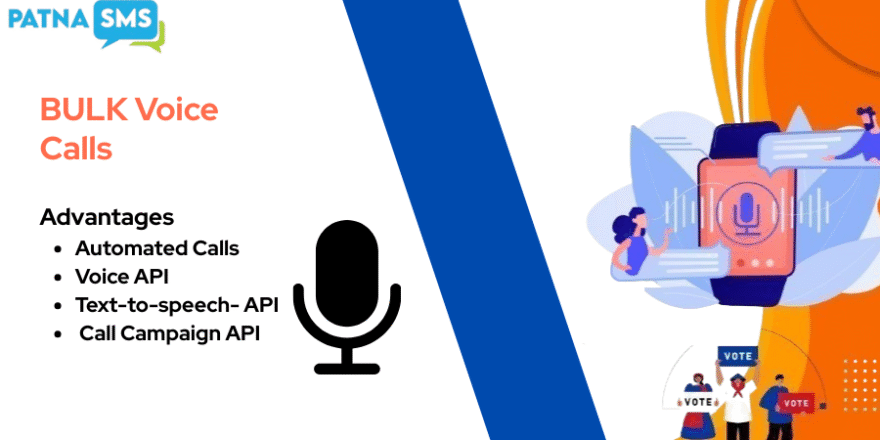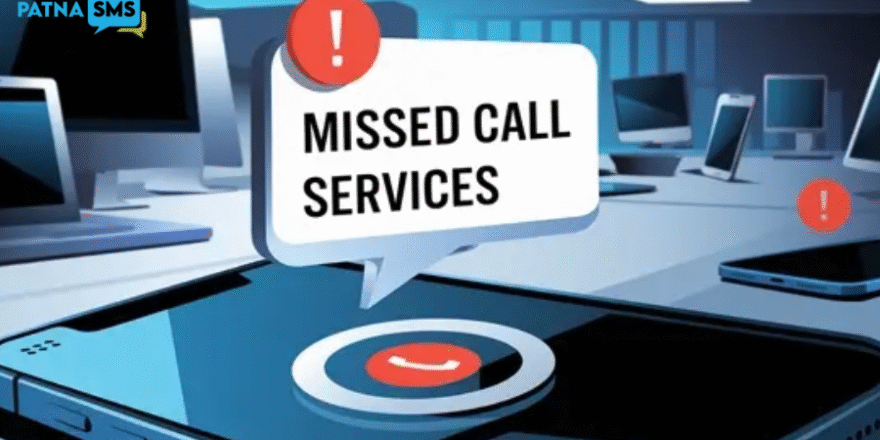In the modern world of business, where speed, efficiency, and personalization define success, IVR (Interactive Voice Response) has emerged as a revolutionary technology. It is not just a simple call-handling system; it’s a gateway to smarter customer interactions, streamlined communication, and better business efficiency. From banking to healthcare, retail to government services, it has transformed the way organizations connect with their customers.
In this comprehensive article, we’ll explore the magic of IVR, how it works, why it’s so powerful, its real-world applications, and how businesses can maximize its potential. Get ready for an exciting journey into the world of IVR—the technology that has changed the voice of customer service forever!
What is IVR?
It is an automated telephony system that interacts with callers, gathers information, and routes calls to the appropriate recipient. It uses pre-recorded messages, touch-tone keypad options, and even advanced AI-driven speech recognition to provide a seamless experience.
When you call your bank and hear:
“Press 1 for account balance, Press 2 for card services, Press 3 to talk to a representative”—that’s IVR in action.
But today’s it goes far beyond simple menu options. With AI integration, natural language processing (NLP), and cloud-based systems, IVR has become intelligent, conversational, and customer-friendly.
Why IVR is So Exciting?
It is exciting because it’s more than just technology—it’s a bridge between businesses and their customers. Here’s why it makes a big difference:
- 24/7 Availability – Customers can connect anytime, day or night, without waiting for office hours.
- Faster Call Resolution – It routes calls instantly to the right department, cutting down wait times.
- Cost Savings – Reduces dependency on human agents for simple queries, saving time and money.
- Personalized Experience – It can identify callers and provide tailored responses.
- Scalability – Perfect for startups and enterprises alike, handling thousands of calls simultaneously.
Simply put, It delivers speed, convenience, and efficiency, which is why it’s a must-have for any customer-centric business.
How IVR Works
The IVR system follows a simple yet powerful process:
- Call Connection – A customer dials a company’s service number.
- Automated Greeting – System plays a pre-recorded welcome message.
- Menu Navigation – Callers select options by pressing keys or speaking commands.
- Data Gathering – It collects customer input (like account number, ID, or query type).
- Routing or Self-Service – The system either resolves the query directly or routes the call to the correct human agent.
With cloud-based IVR, companies can manage large-scale operations globally with unmatched reliability.
Types of IVR Systems
There are mainly two types of IVR systems:
1. Inbound IVR
This is designed for customers who call into a business. It helps in:
- Checking account balances
- Tracking orders
- Paying bills
- Getting support information
2. Outbound IVR
This is used by businesses to proactively reach out to customers. Examples include:
- Appointment reminders
- Payment due notifications
- Promotional campaigns
- Emergency alerts
Outbound has proven to be a powerful marketing and customer engagement tool, increasing brand trust and loyalty.
Benefits of IVR for Businesses
Let’s dive deeper into the most thrilling advantages of using IVR:
1. Unmatched Customer Experience
Customers hate waiting. With IVR, they can get what they need instantly, making interactions smooth and enjoyable.
2. Efficiency at Scale
Whether you have 100 customers or 1 million, it can handle them all effortlessly.
3. Cost-Effective Solution
By automating routine inquiries, it saves huge operational costs for businesses.
4. Professional Brand Image
A well-structured IVR greeting creates a sense of trust and professionalism.
5. Seamless Call Routing
No more transferring customers multiple times. It sends them directly to the right department.
Real-World Applications of IVR
IVR is everywhere—even if you don’t realize it. Let’s look at some sectors where IVR has become a game-changer:
1. Banking and Finance
- Balance inquiries
- Transaction history
- Loan application updates
- Fraud reporting
Banks rely heavily on it to manage millions of calls daily with security and speed.
2. Healthcare
- Appointment scheduling
- Prescription refills
- Lab results delivery
- Patient surveys
For healthcare, It has been revolutionary in improving patient engagement and care efficiency.
3. E-commerce and Retail
- Order tracking
- Product information
- Return requests
- Promotional updates
E-commerce companies use it to build trust and reduce customer support overload.
4. Government Services
- Tax filing status
- Utility bill payments
- Public information hotlines
Governments use it to serve citizens quickly and reduce administrative burden.
5. Travel and Hospitality
- Flight updates
- Hotel bookings
- Reservation confirmations
In travel, It creates a frictionless experience, boosting customer satisfaction.
The Role of AI in Modern IVR
The true excitement of IVR today lies in its fusion with Artificial Intelligence. AI-powered IVR is conversational, smart, and adaptive.
- Speech Recognition: Understands natural human language.
- Personalization: Greets customers by name, recalls past interactions.
- Predictive Analysis: Anticipates customer needs.
- Multilingual Support: Breaks down language barriers globally.
AI-driven IVR is no longer robotic; it feels human-like, friendly, and engaging.
IVR Success Stories
- Amazon – Uses it for order tracking and customer queries, reducing live agent dependency by 40%.
- Airlines – Delta Airlines integrated AI-IVR, cutting average call handling time by 20%.
- Banks – ICICI Bank in India has a powerful IVR system handling 70% of customer queries without human agents.
These stories highlight how it is reshaping industries by saving costs and enhancing customer delight.
Future of IVR

The future of IVR is brighter than ever! Expect innovations like:
- Voice Biometrics for secure authentication
- Hyper-Personalization with AI and CRM integration
- Omnichannel Experience—seamless link between IVR, chatbots, and mobile apps
- Emotion Detection—IVR that senses customer emotions and responds empathetically
With these advancements, It will be the heart of customer engagement strategies worldwide.
Tips for Businesses to Build an Effective IVR
- Keep Menus Simple – Don’t overwhelm customers with too many options.
- Offer Self-Service – Automate routine tasks like payments and order tracking.
- Personalize Messages – Make customers feel valued by addressing them personally.
- Use Clear Voice Prompts – Avoid robotic tones; use natural, friendly voices.
- Give an Agent Option – Always allow customers to connect with a live agent if needed.
A smartly designed IVR can make or break the customer experience.
Why Customers Love IVR
- Instant gratification—no more waiting in long queues.
- Freedom of choice—self-service or live agent, customers decide.
- Personal attention—It recognizes and tailors responses.
- Stress-free communication—simple, quick, and reliable.
When customers feel heard and helped, they become loyal brand ambassadors.
Conclusion: IVR is the Voice of the Future
The world is moving towards automation, intelligence, and personalization, and it is at the forefront of this revolution. Whether you’re a small business or a global enterprise, IVR is not just an option—it’s a necessity.
With its ability to provide 24/7 support, reduce costs, enhance customer satisfaction, and empower businesses, it is truly the voice of the future.
So, if you want your business to shine, grow, and deliver unforgettable customer experiences—it’s time to embrace IVR now!





